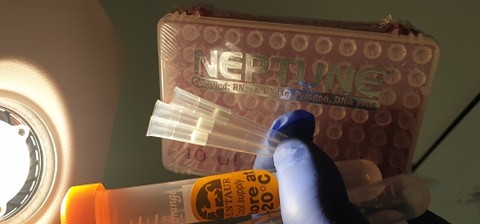The polyclonal antibodies are immunoglobulins produced by collections of different lineages of B lymphocytes that recognize the same antigen but react with different epitopes of the same. On the other hand, monoclonal antibodies are produced by a single B lymphocyte clone, and have a monovalent affinity, that is, they not only recognize the same antigen, but also bind to the same epitope on it.
Who has never wondered if monoclonal or polyclonal antibodies are better? To give an answer to this question, we must first know the differences between them.
Differences Between Monoclonal And Polyclonal Antibodies
To analyze the differences between monoclonal and polyclonal antibodies, we will break down the advantages and disadvantages of each.
Advantages And Disadvantages Of Monoclonal And Polyclonal Antibodies
MONOCLONAL ANTIBODIES (MAb)
- Advantage:
- Specificity : By recognizing a single epitope, its specificity is higher, reducing the probability of cross-reactions and background noise in the assays.
- Reproducibility : They do not present variability between batches, so if the conditions of a certain test are kept constant, the results are highly reproducible
- Quantity : Hybridomas are immortal cell lines with the ability to produce unlimited amounts of highly specific monoclonal antibodies.
- Disadvantages:
- Production : the development of hybridomas requires a longer period of time, implying a higher cost and the use of more complex technology that requires specialized personnel.
- Intolerance to changes in the antigen : when recognizing a single epitope, in the event that it undergoes any modification due to the chemical treatment of the sample, it will no longer recognize the target protein.
- Specificity : the high specificity of monoclonal antibodies can become a drawback in cases where, for example, it is sought to detect several different proteins but with great homology between them.

POLYCLONAL ANTIBODIES (PAb)
- Advantage:
- Affinity : being made up of a mixture of antibodies that recognize different epitopes of the same protein, they have a high affinity for the antigen, which allows the signal to be amplified in the case of proteins with low levels of expression or in low quantities. in the sample to be analyzed.
- Tolerance to changes in the antigen : recognizing different epitopes, they are much less sensitive than monoclonal antibodies to small changes that may occur in the target protein as a result of polymorphisms, heterogeneity of glycosylations, denaturation, etc.
- Robustness : Due to its ability to bind to different epitopes of the target protein, the results obtained with polyclonal antibodies are generally more robust.
- Production : the polyclonal antibody production process is relatively fast and simple, involving a lower cost.
- Disadvantages:
- Reproducibility : by involving the use of different animals for the production of new batches, these can present variability, hindering the reproducibility of the tests.
- Specificity : As they are not specific, polyclonal antibodies can lead to cross-reactivity and an increase in the background signal.
So Are Monoclonal Or Polyclonal Antibodies Better?
Once the differences between monoclonal and polyclonal antibodies are known , it will be much easier to select the one that best suits our experiment, based on the type of antigen and the application or assay at hand.
For example, for applications that require large volumes of antibodies and require reproducibility between assays, or when we intend to discern between two isoforms of a protein, it is best to opt for a monoclonal antibody.
However, if we work with techniques that require a high affinity, such as immunoprecipitation, or when we have a more limited budget, we could opt for a polyclonal antibody.
The fact that there are differences between monoclonal and polyclonal antibodies does not imply that some have a higher quality than the others. This will depend on the intended application, the technique in which they will be used, the available budget (in the case of opting for a tailored production) and the recurrence of its use.

